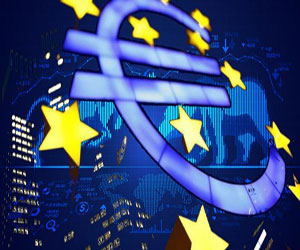There are times when it feels like we are living in a permanent state of crisis. As pointed out in a previous post on this blog, it is a well-known adage that Europe regains its momentum in times of crisis. The biggest crisis facing the future of the EU could arguably be considered the advent of Brexit because it is the first instance of the reversal of enlargement and signs of disintegration. However, how a crisis is actually managed appears to be as important as how a crisis is perceived to be managed. It is in fact the UK which has been perceived as poorly managing Brexit, whereas the EU has come under significant criticism for how it is perceived to have handled the many other crises it has faced, the Covid-19 pandemic and issues in obtaining and distributing vaccinations is a recent, but by no means isolated, example.
The recent events reported in the UK are of a fuel crisis and a shortage of delivery drivers, with widespread reports of potential difficulties of stocking shelves in retailers with headlines accompanied by pictures of queues at the petrol stations. Labour shortages in the hospitality industry have also been reported. In reality, it is hard to tell the true extent to which Brexit is contributing to the current issues of driver shortages, so dominant have been the effects of the pandemic on the ability of people to move internationally, within the EU, and to, and at times within, the UK itself. Perceptions however differ. While many UK citizens attribute the queues at the petrol stations not to an actual shortage of fuel, but to a shortage of drivers advertised by the media, to the extent that they have created a fear of severe fuel shortages, and escalating the situation into a crisis where there is none. Others of course blame Brexit.
However, is the root of the issue a question of crisis (mis) management or sovereignty (mis) management? In modern times is there really a difference between the two? Beniamino Caravita di Toritto astutely identifies that “the true modern sovereignty today lies in the ability to independently manage infrastructures and data circulation” and we can see through current events how even modest adjustments in geopolitical arrangements and norms are crystallising around these two important factors. The ability of a State to manage infrastructures in order to control its own domestic supply chains, and to manage the impact on those supply chains from events and norm adjustments which occur within and outside its territory, are becoming crucial to maintaining both actual and perceived sovereignty. Similarly, digitalisation of the economy and the increasing free flows of information result in significant data circulation activity and consequently raises the question as to whom has access and control of both data and its circulation. The ability to independently manage infrastructures as well as data circulation tests the effectiveness of the State. It is perhaps the case that the current fuel supply and delivery driver shortages are testing the ability of the UK as a State to independently manage infrastructure and data circulation. Consequently, it appears that the UK is having its own sovereignty tested too.
What then can we conclude from the example of the EU in crisis (mis) management? One of the EU’s foundational principles, contained in Article 5 of the Treaty on European Union, is the principle of the conferral of competence from the Member States to the European Union. This is declared in Article 5, subsection 2 as “Under the principle of conferral, the Union shall act only within the limits of the competences conferred upon it by the Member States in the Treaties to attain the objectives set out therein. Competences not conferred upon the Union in the Treaties remain with the Member States”. Debates, which have lasted as long as the existence of the European Community, then Union, itself continue to question whether Member States have limited, shared or sacrificed their own sovereignty to the Union project. Brexit has certainly increased the vehemence and indeed the prominence of this debate and geopolitical events and norms are challenging the stance taken by the UK. Crisis (mis) management is testing the ability of the UK to adapt to a new sovereignty. The adage that Europe regains its momentum in times of crisis is being tested also by the EU’s own response to crises and therefore its own conceptions of sovereignty vis-à-vis its Member States. That momentum is likely to be tested, and indeed stretched, much further as the EU pursues it digital agenda, involving management of AI (see Ferri in this Blog) and its potential human rights implications, and as it proceeds with its own agenda on taxation, whilst trying to take a conciliatory consensus based stance on global taxation, especially with regard to large multi-national companies. The EU seeks to establish its own 'digital sovereignty' as part of its crisis management strategy. The phrase ‘digital sovereignty’ is used to refer to Europe's own ability to act independently in the “digital world” and which “should be understood in terms of both protective mechanisms and offensive tools to foster digital innovation”, an initiative which has been spurred on by the increased digitalisation caused by the pandemic crisis and then by the need to raise its own resources in order to respond. In pursuing its crisis (mis) management strategies in response to the pandemic and increased digitalisation, the EU will find that it also has to face questions about adapting to a new sovereignty. This is especially so regarding the extent to which competence conferral is sufficiently elastic to allow the EU to adapt and establish its own new sovereignty or whether sovereignty is a concept still rooted in the Member States.
Current and future crisis, such as the shortage of delivery drivers or issues with global supply chains more generally, may create a perception of poor planning on the part of some governments and / or be linked to or explained by the fall out of other crises, such as the pandemic. The modern development of the concept of sovereignty may provide the answers to deeper questions as to the root cause. It certainly appears that the UK needs to get better at handling its own sovereignty as it seeks to realign its independence by moving away from the EU and readjusting its geopolitical position. Crisis (mis) management is also questioning the Union’s ability to maintain its values and its foundational principles. Does either the example of the UK or the EU, or indeed both, provide examples as how to manage a crisis or how to manage a new sovereignty?
A Question of Crisis (Mis) Management or Sovereignty (Mis) Management?



























